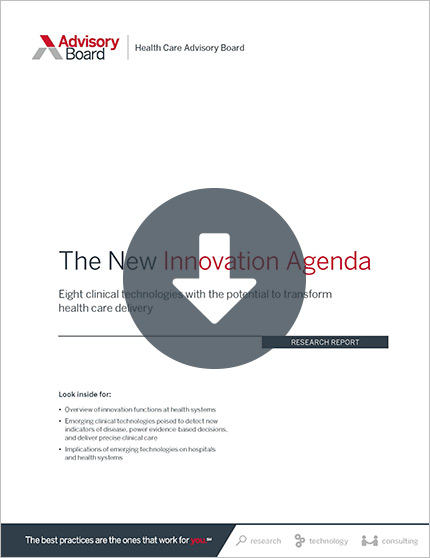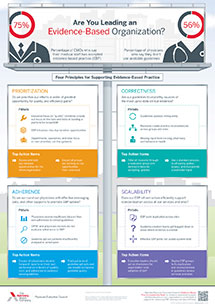Auto logout in seconds.
Continue LogoutThe Annals of Improbable Research on Thursday awarded Ig Nobel Prizes for 10 "improbable" research projects that explored the caloric intake of cannibals, the effects of cursing while driving, and more.
The 28th annual Ig Nobels recognize researchers who have done research that "make[s] people laugh, and then think," according to the journal. The prizes aim to "celebrate the unusual, honor the imaginative—and spur people's interest in science, medicine, and technology."
The winners
The prizes cover a wide range of topics from medicine to anthropology. Here are some of the noteworthy Ig Nobel Prize winners :
- Medicine prize: Marc Mitchell and David Wartinger researched the effects of roller coaster rides on the passage of kidney stones. For their study, the researchers suspended three kidney stones of varying sizes in urine within a simulator and took the simulator on 20 roller coaster rides. The researchers found that the rear-seating positon was the most effective place for passing kidney stones.
- Medical education prize: Akira Horiuchi won this prize for his report—for which he served as the research subject—that investigated whether colonoscopies would be better conducted in a seated position as opposed to lying down. Horiuchi performed four colonoscopies on himself in different positions and at varying levels of discomfort and determined that the seated position may be better for patients.
- Biology prize: Eight researchers received the biology prize for their study that found wine experts can use their sense of smell to reliably identify a single fly within a glass of wine. The researchers discovered that female fruit flies emit a pheromone with a strong scent that humans can easily detect if the fly lands in a glass of wine.
- Chemistry prize: Three researchers received the chemistry prize for their study measuring the effectiveness of human saliva at cleaning dirty surfaces. The researchers found saliva cleans dirty surfaces better than some cleaners—and they identified the component in saliva that's likely responsible.
- Nutrition prize: James Cole won the nutrition prize for his study determining the caloric intake of cannibals and comparing it to other meat diets. Cole found that the caloric intake of a cannibalistic diet is significantly lower than those of more traditional meat diets, suggesting that social and cultural reasons were the primary forces behind people resorting to cannibalism.
- Peace prize: Seven researchers received the peace prize for their study measuring the effects, frequency, and motivation of shouting and cursing while driving. They found that the behavior was associated with a higher rate of car accidents but that people generally believe the practice to be harmless.
- Reproductive medicine: Three researchers received the reproductive medicine prize for a study that used postage stamps to investigate whether impotence was psychogenic or psychological. One sign that impotence is psychogenic is that a male still gets an erection while asleep—but this can be hard to track. To monitor nighttime erections, the researchers attached stamp rings around the participants' genitals and checked to see if the ring had broken over night as the result of an erection.
- Economics prize: Six researchers received the economics prize for their study that investigated the effectiveness of employees using Voodoo dolls to retaliate against their bosses. The researchers found that stabbing a Voodoo doll that represented an employee's abusive boss was cathartic, which could lead to discussions about other, non-confrontational ways to handle with the stress caused by abusive bosses.
The awards were presented at Harvard University, with former Nobel Prize winners in attendance (Sample, The Guardian, 9/13; Weisberger, Live Science, 9/13; Ouellette, ARSTechnica, 9/13).
Learn more about why study design matters
Been awhile since your last statistics class? It can be difficult to judge the quality of studies, the significance of data, or the importance of new findings when you don't know the basics.
Download our cheat sheets to get a quick, one-page refresher on some of the foundational components of evidence-based medicine.
Don't miss out on the latest Advisory Board insights
Create your free account to access 1 resource, including the latest research and webinars.
Want access without creating an account?
You have 1 free members-only resource remaining this month.
1 free members-only resources remaining
1 free members-only resources remaining
You've reached your limit of free insights
Become a member to access all of Advisory Board's resources, events, and experts
Never miss out on the latest innovative health care content tailored to you.
Benefits include:
You've reached your limit of free insights
Become a member to access all of Advisory Board's resources, events, and experts
Never miss out on the latest innovative health care content tailored to you.
Benefits include:
This content is available through your Curated Research partnership with Advisory Board. Click on ‘view this resource’ to read the full piece
Email ask@advisory.com to learn more
Click on ‘Become a Member’ to learn about the benefits of a Full-Access partnership with Advisory Board
Never miss out on the latest innovative health care content tailored to you.
Benefits Include:
This is for members only. Learn more.
Click on ‘Become a Member’ to learn about the benefits of a Full-Access partnership with Advisory Board
Never miss out on the latest innovative health care content tailored to you.


